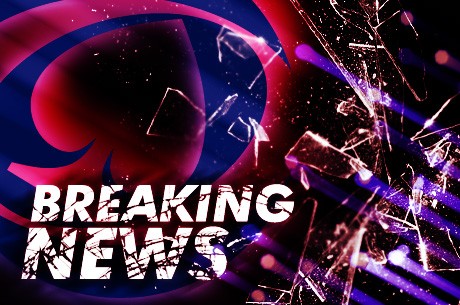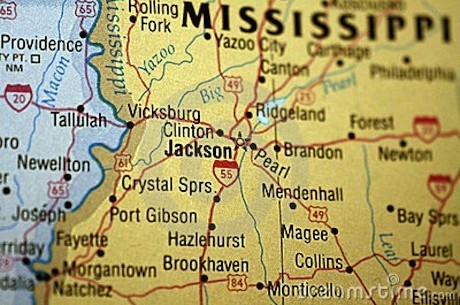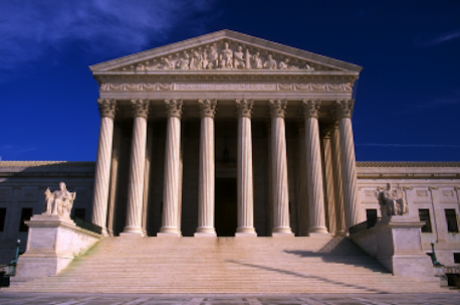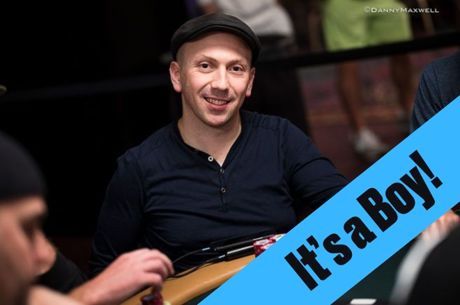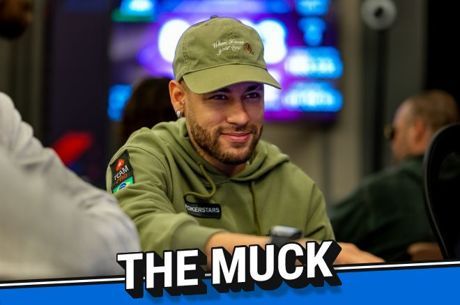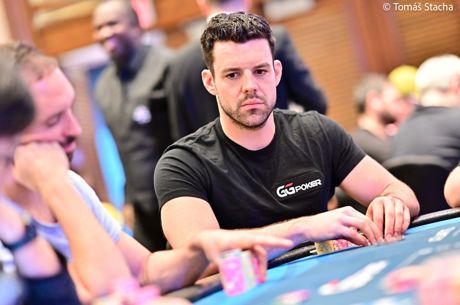A Glimpse Into President Obama's Complicated Relationship With Poker


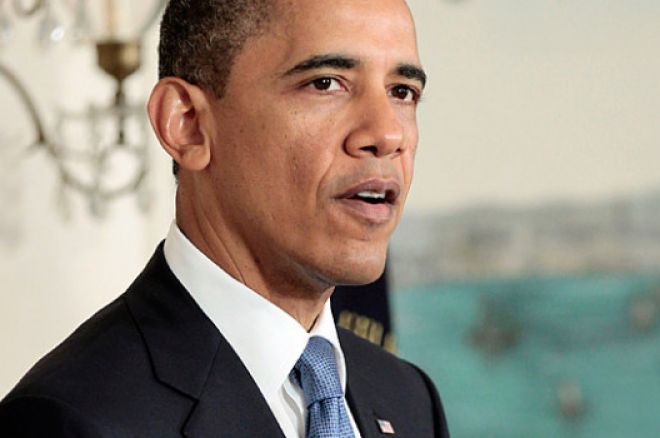
Barack Obama came into office in 2008 as the first poker-playing President since Richard Nixon forty years earlier. As a rookie Senator from Illinois, Obama co-hosted a regular low-stakes home game for which there was a waiting list that included Republicans as well as his fellow Democrats. It was not a big game—a couple of hundred bucks won or lost during a night—but Obama nevertheless downplayed his participation in it during the presidential campaign, aware that in the wake of the Bush Administration’s passage of the Unlawful Internet Gambling Enforcement Act, poker was something of a political hot potato. Writer James McManus, who detailed the candidate’s poker playing in his comprehensive history of the game, Cowboys Full, observed that “American Puritanism has turned playing poker for tiny stakes into radioactive information.”
I talked to McManus about the President’s complicated relationship with poker as a result of that radioactivity, and to what extent he has been able to successfully employ poker skills such as reading the opposition, bluffing, and leveraging capital in real world situations.
In Cowboys Full, you quote Obama describing himself as a “pretty good poker player,” which certainly means he understands there is a considerable component of skill involved in the game and that it is not out-and-out gambling. Given that, why do you think his Justice Department shut down the three most popular internet poker sites operating in this country in 2011?
I think that happened despite what Obama wanted to happen, not because he wanted it to happen. The UIGEA was snuck into law in 2006 by nanny-state Republicans like Jon Kyl and Bill Frist, and happily signed by George W. Bush. Kyl kept pressuring the DOJ to enforce the law, by threatening to hold up Obama's judicial appointments; Obama and most Democrats were hoping Barney Frank's repeal of UIGEA and his new law to license and regulate online poker would pass, but it never happened because the Republicans controlled the House. Eventually Preet Bharara in the Southern District of New York decided to indict the Big 3, but he didn't need Eric Holder's permission and I haven't seen any evidence that Holder supported the prosecution.
There have always been parallels between poker and politics. Much of the language that’s used to describe political negotiation—“He called his bluff;” “He showed his cards;” “He folded under pressure”—comes from poker. How would you rate Obama’s skills in the poker game of politics?
Poker terms and strategies, especially the ones you mention, are definitely part of nearly all political, business and legal negotiations. I think the President is getting better and better at negotiating with his adversaries. He got off to a kind of slow start, I think, because he underestimated the unyielding ferocity of the Tea Party wing. Boehner may have been willing to make deals, but the majority of House Republicans and the Mitch McConnell-ites in the Senate were clearly committed to seeing his Administration fail, so I don't think it's an exaggeration to say it's impossible to negotiate with people like that. That said, he did manage to get his healthcare bill and some other bills passed, though he failed to get meaningful gun control measures, despite overwhelming public support of it.
Given that the Republicans have in general shown a refusal to fold, which as you say makes negotiation impossible, and more specifically, in poker terms, makes bluffing impossible, if you were Obama how would you play against that type of opponent? What type of strategy would be most successful against an unyielding and unbluffable opponent? And are there examples of him having employed such a strategy?
I think the President, like many poker players, has decided to avoid playing hands with them--that he'll have his best results by "playing hands" in which he has maximum leverage, such as making executive orders, e.g. extending the deadline for employers to provide health insurance for a year to reduce resistance to the overall plan, and give the public a chance to see how well it works in other areas, such as lowering premiums in New York and other states, forbidding insurers to refuse coverage to people with pre-existing conditions, etcetera.
I would respectfully disagree with you that he has stopped playing hands with the Republicans, and I would point to the fiscal cliff confrontation, the sequestration battle, etcetera. It seems self-evident to me that the only way to play against an opponent who won't be bluffed is to never try bluffing them. Don't play a hand that you won't see through to the end. He did play sequestration through to the end, but it seems the Republicans won that hand in the end because the world didn't come to an end as he implied it might, at least that’s the perception (the truth is that there have been segments of the country adversely affected by the across-the-board budget cuts, even if we aren’t hearing that much about it). To move away from Obama for a bit, who do you think was the greatest poker-playing president?
The two presidents who had by far the best results at the tables were Eisenhower and Nixon, both of whom won significant amounts as young men in the military. But both stopped playing when they became politicians, believing voters would think it was unsavory. As far as deploying pokerticious skills in the real world, the most justly famous is JFK's bluff of Khrushchev during the Cuban Missile Crisis in 1962, getting the Soviet leader to back down by (among other tactics) putting our bombers on highest alert over a radio frequency he knew the Soviets were tuned into. But as Aaron Brown has astutely pointed out, it was Khrushchev's "nice laydown"--agreeing to remove the missiles from Cuba--that may have saved tens of millions of lives. Like most great bluffs, Kennedy's walked a fine line between crazy and brilliant. Krushchev's poker move, the great fold that cost him his job, may have been the smartest and most humane move any leader ever made, in that it preserved the peace and saved the most lives.
I agree wholeheartedly with you about Kennedy. It was a brilliant and inspired bluff. But from a poker perspective I still can't support it as something with positive expected value. It was like playing in a game that is way too big and putting your entire bankroll in play in a situation where a loss would completely wipe you out--and then, on top of that, running a bluff on your opponent based on a read. If Stuey Ungar had been president, that's how he would have played the Cuban Missile Crisis.
As much as we may love and respect JFK and his legacy, there's absolutely no doubt that he came the closest to causing the deaths of tens or maybe hundreds of millions of people. We don't call the policy of Mutually Assured Destruction "MAD" for nothing, which is why Dr. Strangelove represents it so perfectly. And yet somehow it has worked, at least so far. But it also points to the limits of these poker analogies. If I try to bluff you in a $100 or a $100,000 pot, that's all either of us are gonna lose or win; nobody else loses a penny, let alone gets vaporized in a shear of light and fire. Great poker bluffers are brilliantly and/or crazily aggressive, but great leaders can seldom if ever afford to walk that fine line. That's what Hitler tried to do in WWII when he tried to fight his war on two fronts. That's what the various Great and Dear Leaders have been doing in Pyongyang since 1950, and look at how badly it's working out for their people. Look at how it worked out for Stuey in the end. He was broke.
Obama is clearly not a Stuey Ungar in style, although he is tough to read. Normally, from a poker player’s perspective, that would be considered a good quality. But I think most poker players wish they had a better sense of where he stands on the current illegality of internet poker throughout most of the U.S.
I can say that my strong sense is that he deplores not only the UIGEA but the way it was snuck into law. I can't imagine there was much daylight between his thinking and Barney Frank's on the subject of online poker: license, regulate and tax it. It's a huge issue for us, but from Obama's perspective it's a side issue, when he's trying to reform the healthcare system while forced to engage in death struggles over the debt ceiling, to say nothing of foreign policy. Online poker is tiny potatoes.
What I see happening is that state-by-state legalization will continue to spread until it reaches a critical mass (15 states? 20?), and that states then figure out ways to combine into larger entities to boost traffic on the larger combined sites and thereby raise more tax revenue. Congress will then either be forced to repeal UIGEA and pass a sensible substitute, or simply ignore the way it clashes with more and more state laws. That said, my confidence is close to zero that the House, mainly because of gerrymandering, will soon depart from puritanical Tea Party values, on either women's rights, voting rights, immigration, or online gaming. The House of Representatives is less and less representative of voters' preferences, less democratic, with every day that passes. Long-term, I see online poker being fully restored in the U.S., though as poker players know, the long run often feels like a lifetime. For the last two years, American online players have been running about as bad as we can.
Online poker is hopefully making a come-back in the U.S., be sure to stay sharp with your game by checking out our extensive strategy section.


